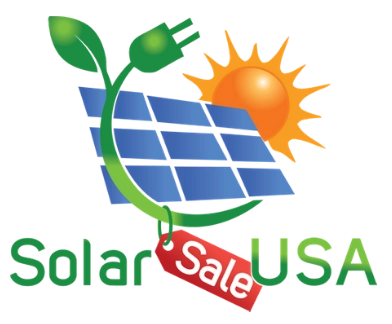Our editorial team is committed to creating independent and objective content focused on helping our readers make informed decisions. To help support these efforts we receive compensation from companies that advertise with us.
The compensation we receive from these companies may impact how and where products appear on this site. This compensation does not influence the recommendations or advice our editorial team provides within our content. We do not include all companies, products or offers that may be available.
Last Updated: February 25, 2025
Every year, more Atlanta residents adopt rooftop solar panels to lower their carbon footprint and add value to their property. Adopting solar energy can reduce your monthly energy expenses and decrease your carbon output. Before you begin the process, you want to make sure you find a trustworthy installer. That’s why, after conducting thorough research on installers, we assembled a guide to the most reputable solar companies in Atlanta. These providers offer high-quality service.

Our Rating
User Rating
Clear pricing policy
Reliable customer support
Informative resources
Free quotes
Family-operated business
Services Offered

Our Rating
User Rating
Clear pricing policy
Reliable customer support
Free quotes
Informative resources
Services Offered

Our Rating
User Rating
Free quotes
Clear pricing policy
Informative resources
Services Offered

Our Rating
User Rating
Informative resources
Clear pricing policy
Free quotes
Services Offered

Our Rating
User Rating
Clear pricing policy
Free quotes
Reliable customer support
Services Offered

Our Rating
User Rating
Clear pricing policy
Free quotes
Reliable customer support
Services Offered

Our Rating
User Rating
Informative resources
Clear pricing policy
Free quotes
Services Offered

Our Rating
User Rating
Reliable customer support
Informative resources
Services Offered

Our Rating
User Rating
Services Offered

Our Rating
User Rating
Informative resources
Services Offered
Today's Homeowner looks at dozens of datapoints on solar companies to come up with our data-driven rankings. It's not possible for a company to pay for preferential treatment in our rankings. We look at the following key factors in determining who should top our list:
Adopting solar power lets homeowners reduce utility bills while helping the environment by reducing your carbon footprint using clean energy. If you’re determining whether to go solar, consider these key factors for choosing an installer.
It's imperative that your solar installer has the proper licensing. This helps ensure that the work is done properly using current best installation practices. Georgia doesn't have solar-specific contractors' licenses, but the law does require solar installers to be licensed electrical contractors. The Georgia Secretary of State manages business filings and licenses.
Check Google Reviews, the Better Business Bureau (BBB), TrustPilot, and other review sites to see what past customers are saying about local solar companies. Detailed reviews can help you evaluate a provider's integrity and customer service. Stay away from providers with few or mainly poor reviews.
To find a solar company that fits your budget, get free, detailed quotes from at least three providers. The quotes should outline all costs and list the solar equipment included. Comparing several quotes helps you identify the best value.
Top-notch solar installations should include strong workmanship and performance warranties. A workmanship guarantee covers installation issues, such as poor alignment, poor wiring, or cracks in the panels. A performance guarantee ensures a minimum energy output. Comprehensive warranties indicate that a solar company believes in its work.
Going solar can help decrease your electric bills over time. When weighing the total price and value of solar panels, make sure to consider these factors.
Solar panel costs vary based on your system's capacity and the technology used. The average solar system in Atlanta has a capacity of 6.8 kilowatts. Homeowners in the area can expect to pay approximately $3,740 per kilowatt; the average Atlanta homeowners spends roughly $17,761 on a new solar system after accounting for federal tax breaks. (Some homeowners prefer to lease solar panels to lower upfront costs.) A personalized quote from a local solar company will account for things like the panel type, size, and capacity of the planned system, and should include prices for labor, permit fees, and preliminary work.
Incentive Type: Sales Tax Incentive
Incentive Amount:
100% exemption
Incentive Amount:
Single Family
Central AC Replacement: $50
Air/Duct Sealing: $300
Attic Insulation: $250
Heat Recovery Water Heater with Heat Pump: $250
Heat Pump Water Heater: $250
Solar Water Heater: $250
Home Energy Assessment: $150
Smart Thermostat: $75
Heat Pump conversion: $250
Multifamily
Central AC Replacement: $25
Air/Duct Sealing: $150
Attic Insulation: $125
Heat Recovery Water Heater with Heat Pump: $250
Heat Pump Water Heater: $250
Solar Water Heater: $250
Home Energy Assessment: $75
Smart Thermostat: $38
Heat Pump conversion: $125
Generally speaking, a solar photovoltaic (PV) system can be used to power any household appliance or system that uses electricity. In the simplest case, you can use a solar water heater.
With home solar PV, you can save money on your energy bill, lower your home's carbon footprint, and gain additional energy independence.
Your installer can give you an estimate of what your energy bills will look like after you install solar panels. Generally, your energy bills will decrease significantly because you'll be using energy from the sun for free, instead of buying energy from the utility company. The average annual savings in Atlanta amount to $1,437.
Your payback period is the time to achieve an ROI on your solar panels. It will vary based on the rate your utility charges per kilowatt of power, their rated capacity, and the average sunlight in your area. Atlanta has extremely high daily sunlight levels, so you could recoup your investment in as little as 12.4 years per 5 kW of rated capacity.
The maintenance you'll need to do will vary based on the type of solar panels you have. At a minimum, you should clean and inspect each panel once per season. Your solar contractor might offer comprehensive plans where they'll do the maintenance for you.
Net metering is a power purchasing policy that allows solar energy system owners to receive bill credits or payments for the amount of energy they put back into the grid. It's available in most states and is a great way to reduce energy costs.
Although solar energy is a great option for many, it might not be ideal for homeowners in wet, dark areas. In these cases, you could consider other forms of renewable energy, such as wind or geothermal power, as a primary source. It is also important to speak to a qualified installer to determine if their solar system is compatible with the climate and environment of your area. Even if you choose a different form of renewable energy altogether, you'll still lower your emissions and could still qualify for distributed generation or other money-saving programs.
